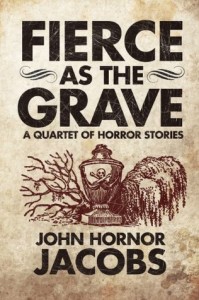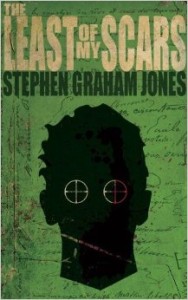Kendra enjoyed being a Meals on Wheels volunteer. She hadn’t lived in the city long, and her freelance job kept her busy working from home. Meals on Wheels gave her a reason every day to get dressed, go outside, and talk to people.
She shared her usual route with Ryan, a beefy man with a rich round laugh and teeth that shone brightly against his brown skin. He was fond of telling stories, but as he told Kendra, it was far more important to listen. Particularly to their clients. “Some of them have family they haven’t seen in years. Some haven’t any family at all. For some, we are their family.”
So Kendra made a point of always listening. Saul Kensington liked to regale her with bawdy tales of his misspent youth, probably hoping to shock her. Phoebe Sutherland— Ryan always called her Miss Phoebe— talked about the doings of her plethora of nieces and nephews. A few clients were chronically grumpy, speaking only to complain. Kendra tried to give them a sympathetic ear anyway. After a few months, Kendra felt she knew her clients better than she knew the people she had grown up with.
Time had not been kind to the street. It had once been bustling and Victorian bourgeois elegant, but now the shop fronts that weren’t boarded up advertised mostly liquor, cigarettes, and lottery tickets. The rents weren’t quite cheap enough to attract the artists who were often the precursors to gentrification. At least three developers had drawn up grandiose plans to level the neighborhood in favor of some postmodern tribute to capitalism, but so far those schemes had gone nowhere.
There was one resident who caught Kendra’s eye. A tiny, elderly woman, hunched with age, whom Kendra sometimes saw walking a little dog up and down the block. Other times the woman could be seen through her window, gazing down at the street, one hand caressing floppy ears.
“Who is she?” Kendra asked Ryan. “She’s not one of our clients.”
“That’s Miz Richards,” Ryan said. “She’s lived in that apartment for almost 70 years now, ever since she was a little girl. I’ve tried to get her to sign up a few times, but she always refuses. Too proud, perhaps.”
“She looks lonely,” Kendra said.
“Honey, the only people ’round here who aren’t lonely are you and me, and that’s because we have so many of our friends to visit before the end of the day.”
One day Kendra was in that same building, trying to deliver a meal, only to be turned away by the man’s son, come to take him to Athens, Georgia, to die near his family. On impulse, with the meal in her hand, she knocked on Miz Richards’ door.
“Who is it?” called the voice from within.
“Ma’am, my name is Kendra. I’m with Meals on Wheels.”
The door cracked open slightly. “I don’t take Meals on Wheels.”
“I know that you’re not one of our usual clients, ma’am, but I happened to have an extra meal today and I wondered if you would like to have it. It would be a shame to let it go to waste.”
The old lady opened the door a little wider and Kendra saw her pet. “What a sweet little dog! What’s her name?”
“This is Greta. She’s been mine for a long time. Won’t you come in?”
It was that simple. A kindly face, a meal, and a dog with floppy ears. After that, Kendra managed to add Miz Richards to her regular route. Any time she got a chance, she would sit and listen for a bit to stories of the street from long ago, of neighbors long gone or dead, of the tiny boutiques and shops that once lined the street.
It wasn’t very long afterwards that when Kendra knocked, the only response was Greta whining and scratching at the door. Mindful of some of the stories she had heard from other Meals on Wheels volunteers, Kendra and Ryan called the building superintendent and asked to be let in for a welfare check.
It looked as though Miz Richards had died peacefully in her sleep, and not too long ago. Kendra made sure that Greta’s food and water bowls were filled as the men from the coroner’s office carefully removed the body.
One of the men asked if she was the next of kin.
“No, I volunteer for Meals on Wheels. She didn’t answer her door today— that’s why we called it in. She has some family, but I don’t know who they are or how to contact them.”
The building manager shrugged hopelessly at a lifetime of accumulated clutter. “All this is going to have to be cleared out,” he said. “I don’t have time to go through it all.”
“Do you mind if we look?” Kendra asked. He gave her a key, and told her they had until the end of the week.
She and Ryan spent a whole day looking through Miz Richards papers. The story they pieced together was a sad one. Her husband had died young. One son in prison, another had moved overseas. A daughter whose last Christmas card had been sent in 1995.
They finally found the name and address of a grandson. When called, he said he hadn’t seen his grandmother since she was a child. He hadn’t even known she was still alive. He had no opinion on what to do with Miz Richards belongings— couldn’t they take care of it? He did agree to take the coroner’s phone number and make arrangements.
Kendra ended up taking Greta home with her. The little dog sleeps at the end of her bed now. On rainy afternoons, Kendra will sit by her window, gazing down at the street, one hand caressing floppy ears.




